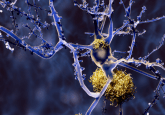GRAIL and Community Health Network partner to understand real-world evidence of early cancer detection

The Real-world Evidence to Advance Multi-Cancer Early Detection Health Equity (REACH/Galleri-Medicare) will evaluate the Galleri® test’s impact on early cancer detection in diverse Medicare populations, focusing on underrepresented groups.
GRAIL, Inc. (Nasdaq: GRAL), a healthcare company dedicated to early cancer detection, has announced the enrollment of the first participant in the first of its kind REACH/Galleri-Medicare study. In collaboration with Indiana-based Community Health Network, this multi-center, prospective, 3-year study aims to evaluate the real-world clinical impact of GRAIL’s Galleri multi-cancer early detection (MCED) test in the Medicare population, particularly focusing on diverse and underrepresented populations. This includes racial/ethnic minority groups as well as socioeconomically disadvantaged and rural populations.
The REACH/Galleri-Medicare study seeks to enroll up to 50,000 Medicare beneficiaries, comparing those receiving currently recommended cancer screenings plus an annual Galleri test with those receiving currently recommended cancer screenings alone. The study spans up to 50 sites and aims to measure the clinical impact of the Galleri test by assessing the reduction in diagnosed stage IV cancers, the safety associated with Galleri use, and healthcare resource utilization for cancer diagnostic workups.
The study is being conducted at Community Health Network, a leading integrated healthcare system in central Indiana, USA with over 200 sites of care, and a long-standing commitment to patient-centered care and population health management.
Patrick McGill (Executive Vice President, Chief Transformation Officer, and Principal Investigator of the REACH study at Community Health Network) explained,
“As a health network committed to exceptional care for patients it was important for Community Health Network to participate in the REACH study. We really want to expand upon and understand the real-world evidence of the Galleri test. Since the focus is on underrepresented minorities, we felt strongly that this was an opportunity to offer the test as part of the REACH study to many of the people who are traditionally or historically underrepresented in clinical studies. We feel strongly about the science of the test and the potential it holds to improve health outcomes for our Medicare patients.”
GRAIL leverages next-generation sequencing, large-scale clinical studies, and advanced machine learning to detect multiple cancer types at early stages. Their innovative methylation-based platform supports various aspects of cancer care, including screening and precision oncology.
“The first participant enrolled in the REACH study marks a significant milestone for GRAIL and its pursuit of broad access to Galleri for asymptomatic, early cancer detection,” said Josh Ofman, President at GRAIL. “The findings from this study will add to our robust body of clinical evidence evaluating the potential for MCEDs to change the future of cancer detection, including in diverse populations.”
The REACH study is conducted under an Investigational Device Exemption (IDE) approved by the FDA, with Medicare covering the costs of the Galleri test and related services for participants. With nearly 70% of cancer-related deaths in the US occurring in individuals aged 65 and older, and more than half of all cancer diagnoses among Medicare beneficiaries, the REACH study aims to address this critical need for early cancer detection in a high-risk population.
Want regular updates on the latest real-world evidence news straight to your inbox? Become a member on The Evidence Base® today>>>






